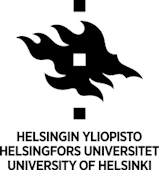
University of Helsinki

The University of Helsinki is one of the best multidisciplinary research universities in the world. The high-quality research carried out by the university creates new knowledge for educating diverse specialists in various fields, and for utilisation in social decision-making and the business sector.
The University of Helsinki is an international academic community of 40,000 students and staff members. It operates on four campuses in Helsinki and at 17 other locations.
Founded in 1640, the University of Helsinki wants to strengthen its position among the world’s leading multidisciplinary research universities and to actively promote the well-being of humanity and a fair society.
Links
Displaying 1 - 20 of 28 articles

Le désert du Sahara est vert et végétalisé tous les 21 000 ans. Un modèle climatique montre pourquoi.

The Sahara Desert is green and vegetated every 21,000 years. A climate model shows why.

Groundbreaking study demonstrates how behaviour drives long-term evolution over 20 million years.

Researchers simulated thousands of scenarios of an ancient pathogen being released into modern ecosystems. In the worst cases, up to one-third of host species were destroyed.

Online searches search trends reveal that there’s a growing link between modern ways of living and the vicious cycle of biophobia.

To what extent should the costs of protecting globally valued rhinos be carried by their local custodians?

Targeted income support could help tackle big social and ecological challenges.

The findings show that Zambian agricultural policies do reduce headcount poverty and inequality.

New research finds nearly 30% of land animals could disappear form their local area by 2100 due to climate change and habitat destruction. This is more than double previous predictions.

There have been 27 UN COP meetings. Despite these negotiations, the planet is on target to exceed emission thresholds for global warming. Given these failures, why continue with this process?

Debates centred on the role of recreational hunting in supporting nature conservation and local people’s livelihoods are among the most polarising in conservation today.

La nueva Estrategia para la Conservación y Gestión del Lobo en España puede generar nuevas tensiones entre los grupos sociales involucrados, relacionadas frecuentemente con procesos poco participativos.

Ancestral Indigenous songs often encode territorial responsibilities and rights, such as in relationship with ‘lokiwey’ (coastal clam gardens) on the Pacific Northwest Coast.

Un sistema de producción animal exclusivamente basado en pastoreo podría cubrir nuestras necesidades nutricionales, de manera sostenible y suficiente.

Los movimientos de ganado contribuyen a la mitigación de incendios forestales, a la dispersión de semillas y a la conservación de polinizadores y otros insectos de gran valor ecológico.

Our work represents the first assessment of what social and economic factors are connected to environmental degradation across the entire African continent.

The global environmental crisis is overwhelming, but showing children how they can take care of their immediate environment can empower them to feel like they can make a difference.

Social media offers good conditions for wildlife trafficking to thrive.

A new map shows that more than 25% of all land outside Antarctica is held and managed by Indigenous peoples. This makes these communities vital allies in the global conservation effort.

There are a few things that musicians should understand about the music industry if they are to avoid being taken for a ride.
